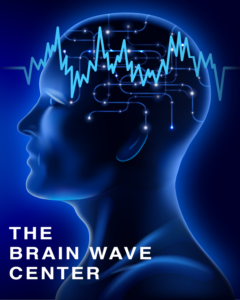Resilient Retreat is currently accepting applications to participate in FREE neurofeedback. In order to qualify , you must be 18 or over and have experienced some kind of abuse in your lifetime (e.g., domestic violence, sexual violence, child abuse, trafficking, stalking).
What is Neurofeedback?
Neurofeedback involves retraining your brainwaves to optimize your brain’s ability to perform well and stay healthy. Our brains are surprisingly malleable and able to make remarkable changes throughout our life. One way that this can be done is through rewarding our brains when they function optimally, just like you reward your pet with a treat when they do a trick. Neurofeedback involves watching a movie and rewarding your brain with clear sound/picture quality when your brainwaves perform optimally and decreasing sound/picture quality when your brainwaves are not functioning optimally. Just like your family pet cannot learn to do a trick in only one session, brain changes cannot happen in one session either. As a result, neurofeedback involves 20 sessions to ensure the effects remain lasting.
Why Neurofeedback After Abuse?
Throughout the psychological community, it is known that abuse in one’s lifetime (e.g., domestic violence, sexual violence, child abuse, trafficking, stalking) can have adverse effects on the victims well-being. Continuous exposure to the stress of abuse can negatively effect the brain and body of the victim. These negative effects can be seen throughout different regions of the brain via brainwaves, which can lead to PTSD, anxiety, and depression. Given this knowledge, neurofeedback aims to retrain a person’s brainwaves to minimize or subside the effects of PTSD, anxiety, and depression.
Indeed, several research studies have suggested that neurofeedback can be helpful for trauma survivors:
How Do I Learn More?
If you are 18 or over and have experienced some kind of abuse in your lifetime (e.g., domestic violence, sexual violence, child abuse, trafficking, stalking), neurofeedback may be a good fit for you. Currently, Resilient Retreat is looking for 20 survivors who can dedicate time to complete 20 sessions of neurofeedback (40 minutes each) and 2 brain scans (2 hours each). This program is being provided in collaboration with one of our community partners, The Brain Wave Center.
To learn more, call Resilient Retreat at 941-343-0039. If you would like to apply, please complete our online APPLICATION.
